
The Untouched Beauty of Babeldaob Island
Babeldaob Island, the largest island in Palau, is a treasure trove of natural wonders and cultural heritage. Unlike the more commercialized islands, Babeldaob remains largely untouched, offering pristine landscapes and a serene atmosphere. The island is home to dense forests, rolling hills, and stunning beaches, making it a paradise for nature lovers and adventure seekers alike. On Babeldaob, history comes alive through its many ancient sites. The Stone Monoliths at Ngarchelong are a must-visit, standing as silent witnesses to the island's rich past. Additionally, the island features traditional villages where you can experience Palauan culture first-hand. Don't miss the Bai (men's meeting house) in Airai, which is one of the oldest in the Pacific. For those who enjoy outdoor activities, Babeldaob offers numerous hiking trails that lead to breathtaking waterfalls, such as Ngardmau Falls, the largest waterfall in Palau. The island also boasts the Palau Capitol Complex in Ngerulmud, an impressive structure that provides a glimpse into the nation's political life. Whether you're exploring its natural beauty or cultural landmarks, Babeldaob Island promises an unforgettable experience.
Local tips in Babeldaob Island
- Carry insect repellent to stay comfortable during hikes and visits to the forested areas.
- Rent a car for the best way to explore the island's remote and scenic spots.
- Visit the Stone Monoliths at Ngarchelong early in the morning to avoid crowds and enjoy the tranquil atmosphere.
- Pack a picnic to enjoy at one of the island's many picturesque beaches.
- Respect local customs and traditions, especially when visiting traditional villages and cultural sites.
The Untouched Beauty of Babeldaob Island
Babeldaob Island, the largest island in Palau, is a treasure trove of natural wonders and cultural heritage. Unlike the more commercialized islands, Babeldaob remains largely untouched, offering pristine landscapes and a serene atmosphere. The island is home to dense forests, rolling hills, and stunning beaches, making it a paradise for nature lovers and adventure seekers alike. On Babeldaob, history comes alive through its many ancient sites. The Stone Monoliths at Ngarchelong are a must-visit, standing as silent witnesses to the island's rich past. Additionally, the island features traditional villages where you can experience Palauan culture first-hand. Don't miss the Bai (men's meeting house) in Airai, which is one of the oldest in the Pacific. For those who enjoy outdoor activities, Babeldaob offers numerous hiking trails that lead to breathtaking waterfalls, such as Ngardmau Falls, the largest waterfall in Palau. The island also boasts the Palau Capitol Complex in Ngerulmud, an impressive structure that provides a glimpse into the nation's political life. Whether you're exploring its natural beauty or cultural landmarks, Babeldaob Island promises an unforgettable experience.
When is the best time to go to Babeldaob Island?
Iconic landmarks you can’t miss
Japan-Palau Friendship Bridge
Explore the stunning Japan-Palau Friendship Bridge, a symbol of cultural unity offering breathtaking views and serene walks over beautiful waters.
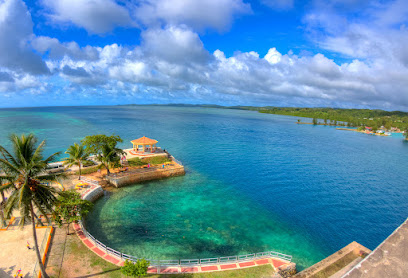
Babeldaob
Explore Babeldaob: Palau's largest island, a paradise of natural beauty, rich culture, and endless adventure for every traveler.
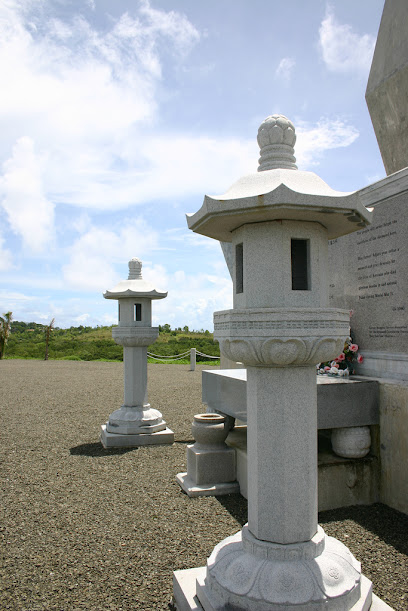
World War II Japanese Communications Center
Discover the rich history of the World War II Japanese Communications Center in Airai, Palau, a pivotal site of military communication during the Second World War.
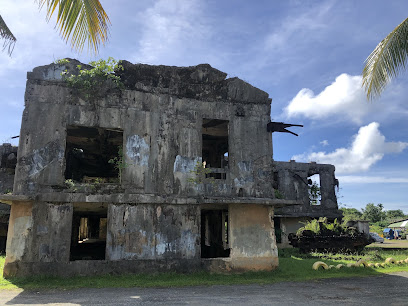
Unmissable attractions to see
Natural Arch
Explore the stunning Natural Arch in Palau's Rock Islands, a breathtaking natural wonder perfect for adventure and relaxation amidst pristine beauty.
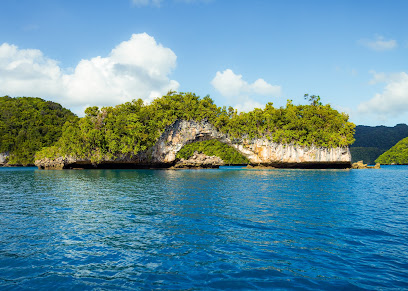
パラオ松島
Experience the enchanting beauty of Palau, an island paradise rich in marine life, adventure, and cultural heritage.
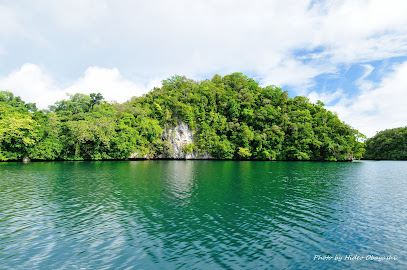
Big Drop Off
Experience the breathtaking underwater world at Big Drop Off in Palau's stunning Rock Islands, a diver's paradise filled with vibrant marine life.
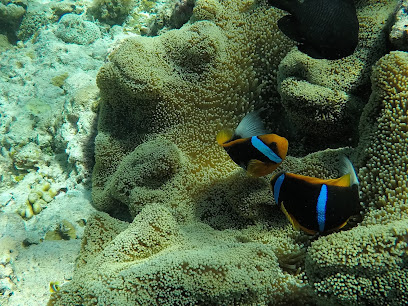
Ngerchebal
Experience the breathtaking beauty and cultural richness of Ngerchebal in Aimeliik, Palau – a hidden paradise waiting to be explored.
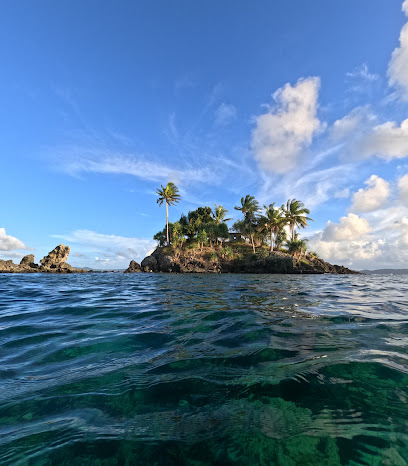
Olsebokel Kedam
Explore the serene natural beauty and rich cultural heritage of Olsebokel Kedam in Ngaraard, Palau - a hidden gem for every traveler.
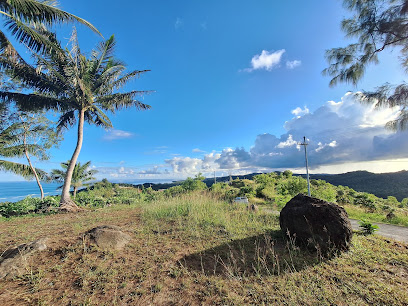
Ngelukes Conservation Area
Explore the breathtaking Ngelukes Conservation Area, a serene nature preserve in Ngchesar, Palau, perfect for eco-tourism and nature lovers.

สวนทุเรียน ป้าจุ๋ม ป่าละอู
Explore the tranquil beauty of Huaysatyau Garden in Melekeok, Palau, a tropical paradise perfect for relaxation and nature appreciation.

Red Trail
Discover the natural wonders of the Red Trail in Palau, where vibrant landscapes and rich ecosystems await every adventurer.

Essential places to dine
Drop Off Bar and Grill
Experience delicious local flavors at Drop Off Bar and Grill in Koror - where great food meets stunning views.
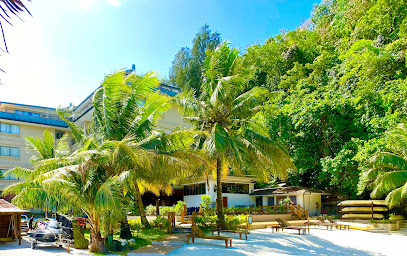
The Taj
Discover authentic Indian cuisine at The Taj in Koror—an unforgettable dining experience filled with rich flavors and warm hospitality.
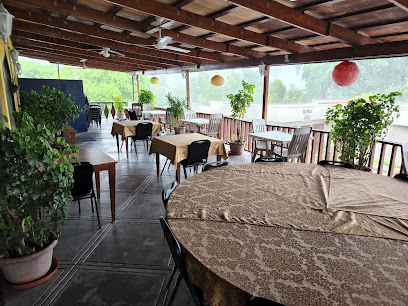
Elilai Seaside Dining
Experience exquisite fine dining with breathtaking ocean views at Elilai Seaside Dining in Koror, Palau.
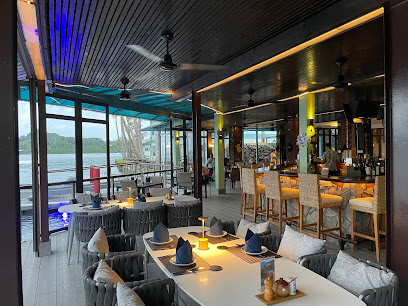
The Canoe House
Experience the vibrant flavors of Palau at The Canoe House—where culinary delights meet lively entertainment.
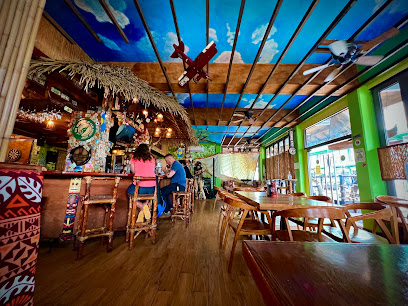
Rock Island Cafe
Discover delightful flavors at Rock Island Cafe in Koror - where local ingredients meet vibrant Pacific cuisine.
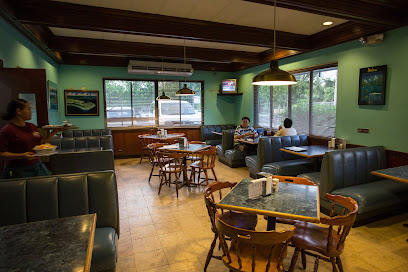
Coffee Berry
Experience the flavors of Palau at Coffee Berry, where traditional cuisine meets modern cafe vibes in Koror's heart.
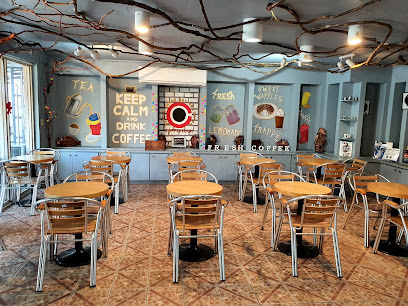
Palm Bay Bistro
Experience exquisite Pan Asian cuisine at Palm Bay Bistro, where every meal is a delightful journey through Asia's rich culinary heritage.
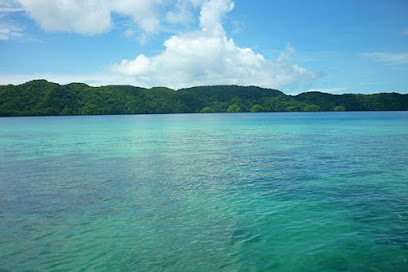
Carp Restaurant
Experience the authentic taste of Palauan cuisine at Carp Restaurant in Koror – where fresh seafood meets warm hospitality.
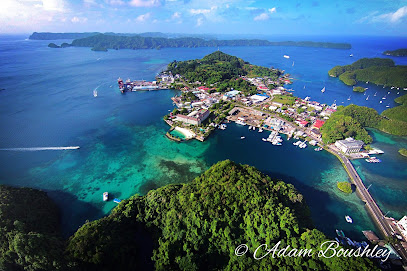
7 Eat Restaurant
Experience authentic Palauan cuisine with fresh seafood delights at 7 Eat Restaurant in Koror.
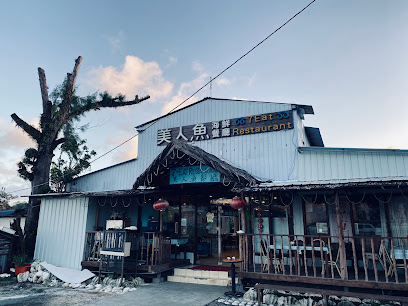
Palau Umi Korean and Japanese Cuisine
Experience the best of Korean and Japanese cuisine at Palau Umi in Koror - where flavors meet tradition in every dish.
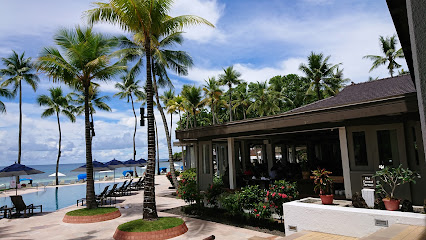
Red Rooster Cafe
Experience the vibrant flavors of Palau at Red Rooster Cafe - your go-to spot for delicious food and great atmosphere.
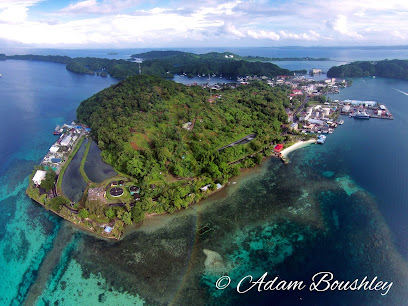
King Palace
Experience the vibrant flavors of local and international cuisine at King Palace in Koror, Palau – a true culinary delight!
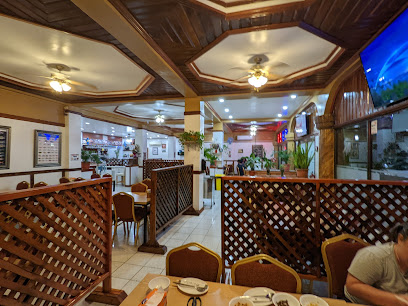
MJ Restaurant
Experience authentic Palauan flavors at MJ Restaurant in Koror - a must-visit diner for all food lovers!
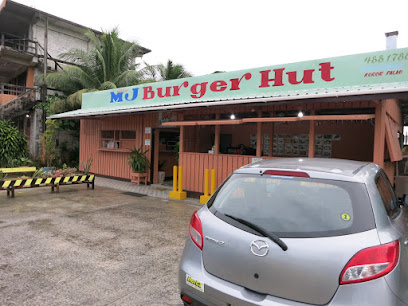
Krämer’s Bar and Restaurant
Experience exquisite flavors at Krämer’s Bar and Restaurant in Koror, Palau—where culinary excellence meets island charm.
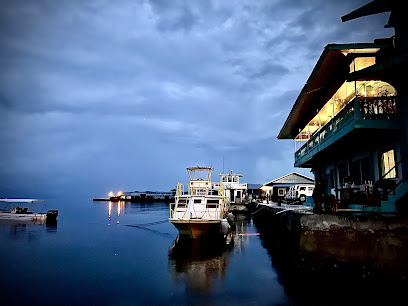
Riptide Beach Bar & Grill
Experience exquisite dining with stunning ocean views at Riptide Beach Bar & Grill in Koror, Palau – where every meal feels like a tropical getaway.
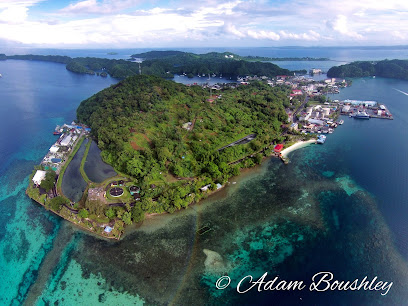
Markets, malls and hidden boutiques
Surangel and Sons Co. - Koror
Explore Surangel and Sons Co. in Koror for a unique shopping experience filled with local crafts, souvenirs, and vibrant Palauan culture.
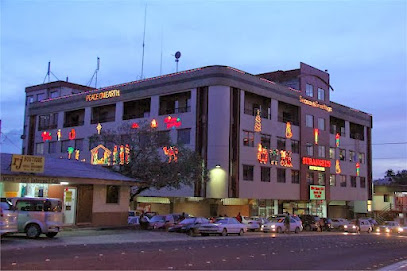
Rur Gift Shop & Cafe
Discover unique Palauan souvenirs and enjoy delightful café treats at Rur Gift Shop & Cafe in Koror.
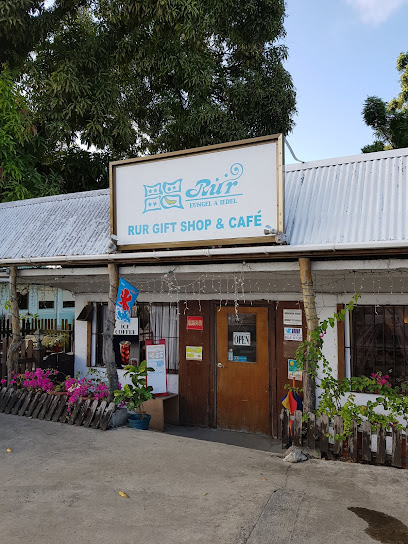
Ben Franklin Department Store
Explore a diverse selection of local products and souvenirs at Ben Franklin Department Store, the heart of shopping in Medalaii, Koror, Palau.
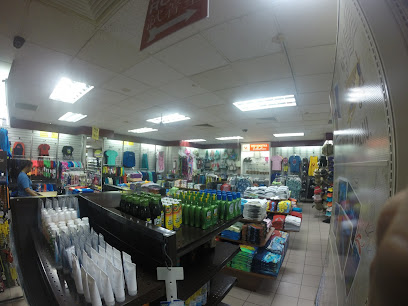
EXILE
Discover unique fashion at EXILE in Koror, Palau, where local culture meets contemporary style for an unforgettable shopping experience.
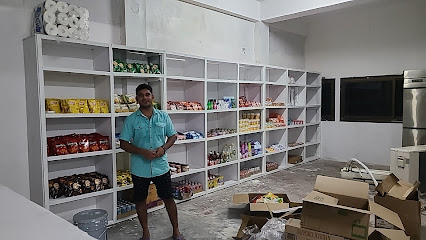
Amel Store
Amel Store: Your one-stop grocery destination in Ngerulmud, offering fresh local and international products to enhance your Palau experience.
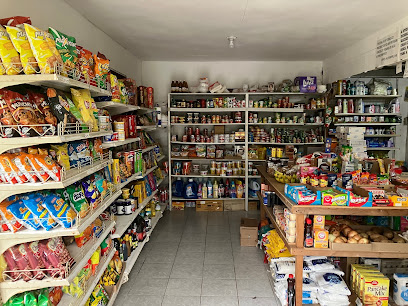
Globus Palau
Explore Globus Palau in Koror for unique home goods, local crafts, and quality items that reflect the beauty of Palau.
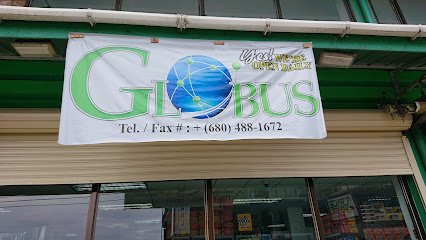
Lius Gift Shop
Discover unique gifts, local crafts, and delightful treats at Lius Gift Shop in Koror, a must-visit for tourists in Palau.
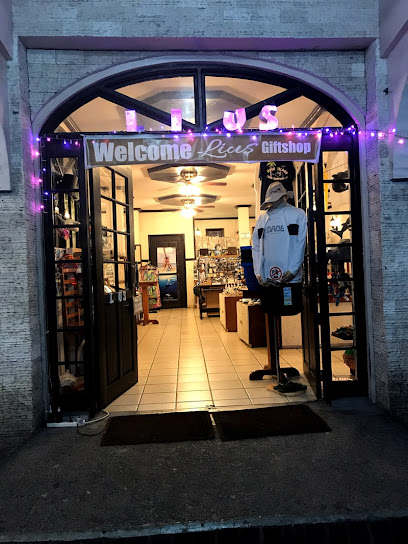
E&A Store
Explore the vibrant E&A Store in Melekeok, Palau for unique local products, handcrafted souvenirs, and a taste of local culture.
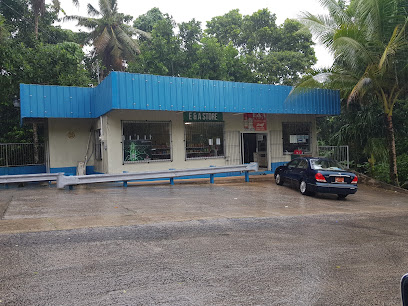
Long Beach
Discover the perfect blend of convenience and local charm at Long Beach, your go-to spot for essentials and delicious deli treats in Ngaraard, Palau.
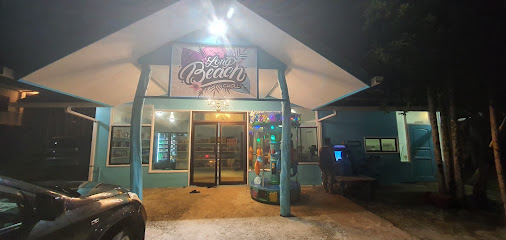
Palau Central Trading Co.
Explore Palau Central Trading Co. for unique local gifts, art, and gourmet treats that celebrate the rich culture of Palau.
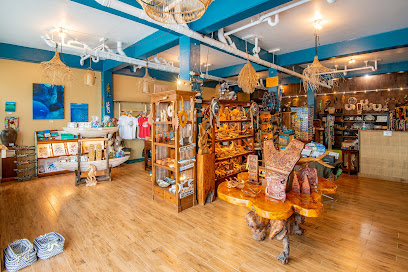
WEST DESEKEL MART
Discover the essential grocery shopping experience in Koror, Palau, at West Desekel Mart, your one-stop shop for daily essentials and local flavors.
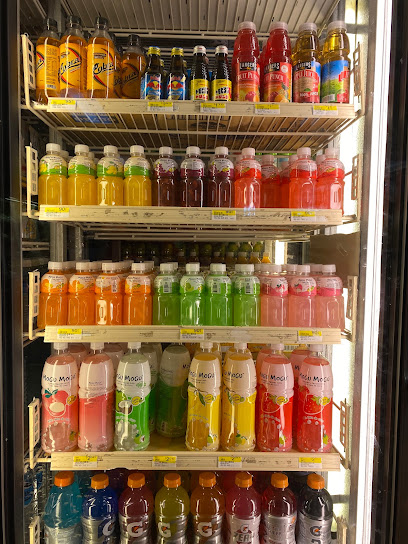
Jello's Fashion II
Discover Jello's Fashion II in Koror, Palau - your go-to convenience store for snacks, drinks, and essentials at affordable prices.
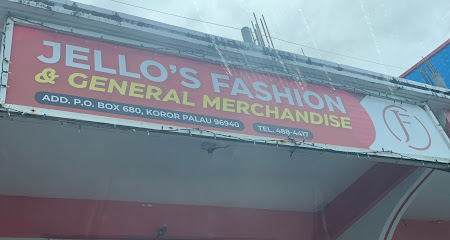
Capital Seaside Store
Explore Capital Seaside Store in Melekeok for unique local crafts, souvenirs, and a taste of Palauan culture amidst stunning seaside views.
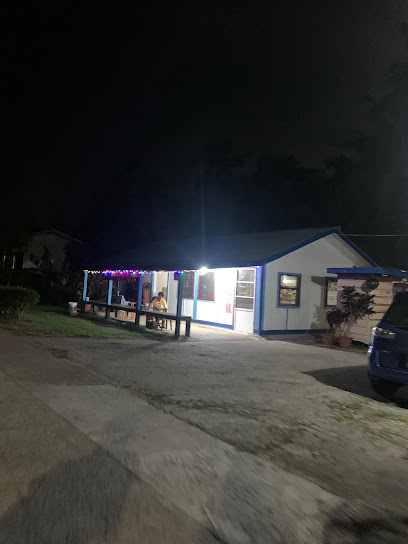
TSA Paradise Store
Discover convenience and local products at TSA Paradise Store in Ngarchelong, Palau, your perfect travel companion.

D.A store
Explore the rich flavors of Palau at D.A Store, your local grocery destination for fresh produce and unique souvenirs.
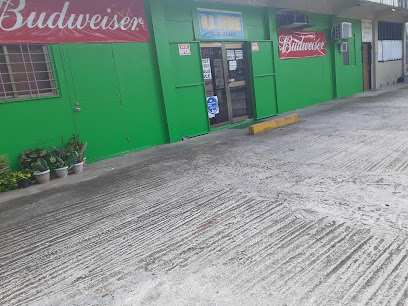
Essential bars & hidden hideouts
Drop Off Bar and Grill
Experience the vibrant flavors and stunning ocean views at Drop Off Bar and Grill in Koror, Palau – a perfect dining spot for every traveler.
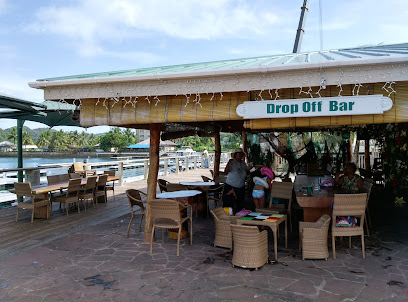
The Canoe House
Discover the vibrant flavors of The Canoe House in Palau - a lively bar and restaurant perfect for food lovers and entertainment seekers alike.
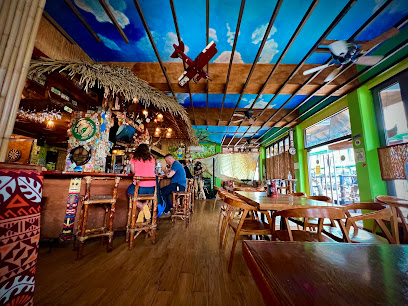
Rock Island Cafe
Experience the vibrant flavors of Palau at Rock Island Cafe, a culinary gem in Koror offering local and international dishes with stunning views.
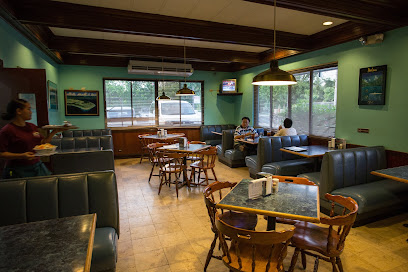
Red Rooster Cafe
Experience the essence of Palauan cuisine at Red Rooster Cafe, a must-visit restaurant in Koror, offering fresh flavors and stunning views.
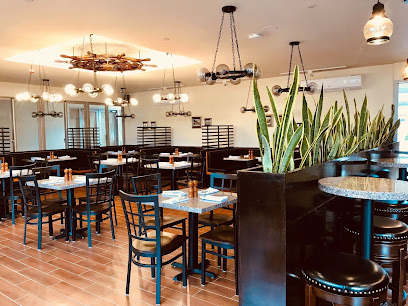
Krämer’s Bar and Restaurant
Explore the flavors of Palau at Krämer’s Bar and Restaurant, where local dishes meet international cuisine in a stunning tropical setting.
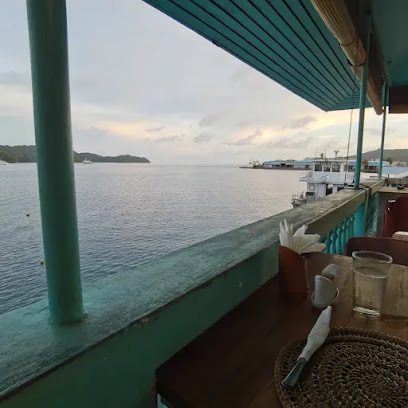
Riptide Beach Bar & Grill
Discover the flavors of Palau at Riptide Beach Bar & Grill, where stunning ocean views meet delicious cuisine in a vibrant atmosphere.
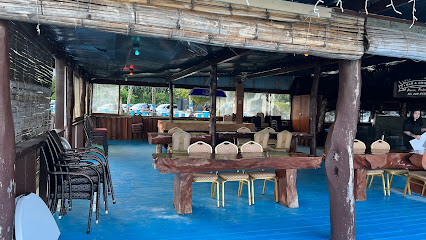
Barracuda Restaurant
Experience the flavors of Palau at Barracuda Restaurant, where local cuisine meets stunning views in the heart of Koror.
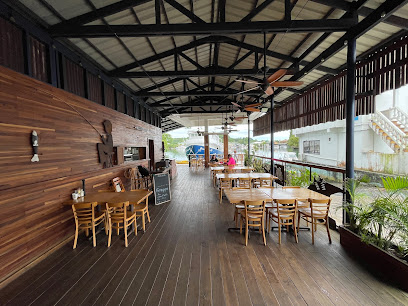
Hungry Marlin Restaurant & Bar at COVE Resort Palau
Experience the vibrant flavors of Palau at Hungry Marlin Restaurant & Bar, where fresh seafood meets stunning ocean views in a tropical paradise.
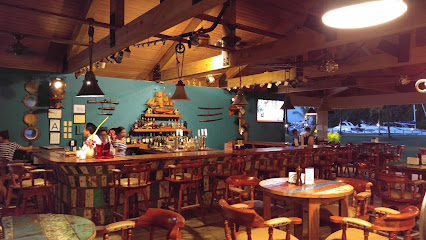
The Salad Bar
Discover The Salad Bar in Koror, Palau, where health meets flavor in every delicious bite, perfect for tourists seeking nutritious dining options.
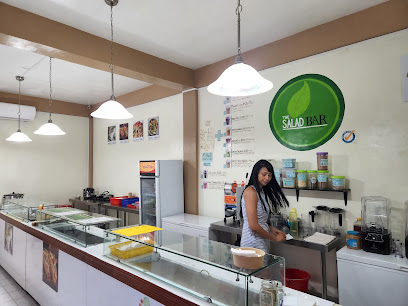
Ollei Jive Café
Experience the essence of Palauan cuisine at Ollei Jive Café in Babeldaob, where fresh flavors meet a warm atmosphere.
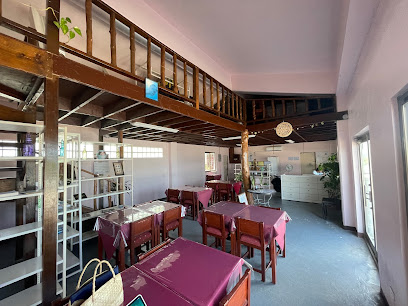
Bottom Time Bar and Grill
Discover a culinary paradise at Bottom Time Bar and Grill in Koror, Palau, where local flavors meet a vibrant atmosphere.
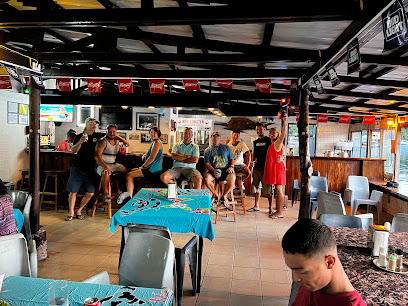
Jungle Bar
Experience the vibrant flavors and tropical ambiance at Jungle Bar in Koror, Palau, where culinary delights meet island charm.
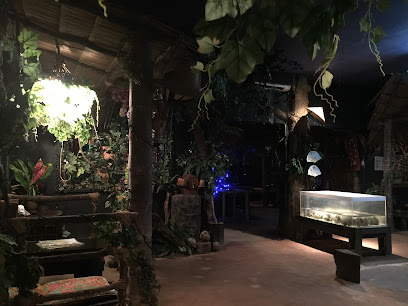
Weltz Bar at the Palasia Hotel
Discover the vibrant atmosphere and refreshing cocktails at Weltz Bar in the Palasia Hotel, the perfect spot for relaxation in Koror, Palau.
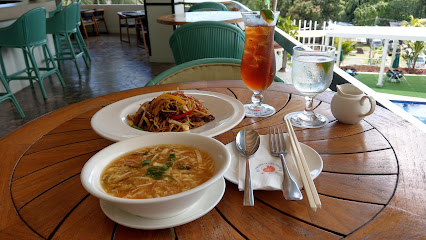
Club Gorgeous
Experience the tropical vibes of Club Gorgeous, a must-visit bar in Koror, Palau, known for its refreshing cocktails and vibrant atmosphere.
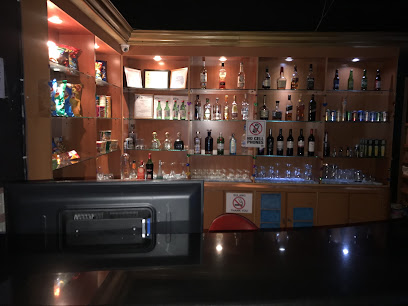
The Republic Restaurant & Bar
Discover the vibrant culinary scene at The Republic Restaurant & Bar in Koror, where local flavors meet a lively atmosphere.

Local Phrases about Babeldaob Island
-
- HelloAlii
[ah-lee] - GoodbyeKo el meral
[koh ehl meh-rahl] - YesEa
[eh-ah] - NoNg diak
[ng dee-ahk] - Please/You're welcomeKmal mesaul
[kuh-mahl meh-sow-ool] - Thank youUngil melekoi
[oong-eel meh-leh-koy] - Excuse me/SorryKemol
[keh-mohl] - How are you?Kmal mesisiich
[kuh-mahl meh-see-seech] - Fine. And you?Ngii a rechad er a beluu. A rechad er ngak?
[ng ee ah reh-chahd ehr ah beh-loo. ah reh-chahd ehr ngahk] - Do you speak English?Mla meringel a beluu?
[mah-lah meh-ring-ehl ah beh-loo] - I don't understandNg di meral diak
[ng dee meh-rahl dee-ahk]
- HelloAlii
-
- I'd like to see the menu, pleaseAk mo ngar er a menu, kemam
[ahk moh ngahr ehr ah meh-noo, keh-mahm] - I don't eat meatNg diak kede a rengalek
[ng dee-ahk keh-deh ah rehn-gah-lehk] - Cheers!Kede mekeald
[keh-deh meh-keh-ahld] - I would like to pay, pleaseAk mo mechas er a bils ra kemam
[ahk moh meh-chahs ehr ah beels rah keh-mahm]
- I'd like to see the menu, pleaseAk mo ngar er a menu, kemam
-
- Help!Kemam!
[keh-mahm] - Go away!Kemiu!
[keh-mee-oo] - Call the Police!Kemiu el kall er a osechel
[keh-mee-oo ehl kahl ehr ah oh-seh-chel] - Call a doctor!Kemiu el kall er a beluu
[keh-mee-oo ehl kahl ehr ah beh-loo] - I'm lostNg diak el chad er a rurt
[ng dee-ahk ehl chahd ehr ah roo-rt] - I'm illNg diak el chad er a beluu
[ng dee-ahk ehl chahd ehr ah beh-loo]
- Help!Kemam!
-
- I'd like to buy...Ak mo omekedong er...
[ahk moh oh-meh-keh-dohng ehr] - I'm just lookingNg diak el chad er a rengalek
[ng dee-ahk ehl chahd ehr ah rehn-gah-lehk] - How much is it?Kmal mekngit a rechad?
[kuh-mahl mehk-ngit ah reh-chahd] - That's too expensiveNg meral di chad er a rechad
[ng meh-rahl dee chahd ehr ah reh-chahd] - Can you lower the price?Mla mo dengchokl a rechad?
[mah-lah moh dehng-choh-kl ah reh-chahd]
- I'd like to buy...Ak mo omekedong er...
-
- What time is it?Kmal mesisiich er a beluu?
[kuh-mahl meh-see-seech ehr ah beh-loo] - It's one o'clockAk kmal merael
[ahk kuh-mahl meh-rahl] - Half past (10)Kmaltk el 10
[kuh-mahl-tuhk ehl 10] - MorningMeringel a uchul a klukuk
[meh-ring-ehl ah oo-chuhl ah kloo-kook] - AfternoonMeringel a uchul a ngalek
[meh-ring-ehl ah oo-chuhl ah ngah-lehk] - EveningMeringel a uchul a reng
[meh-ring-ehl ah oo-chuhl ah rehng] - YesterdayKallem e mocha ngal
[kahl-lehm eh moh-chah ngahl] - TodayKmal mesisiich
[kuh-mahl meh-see-seech] - TomorrowA blikel
[ah blee-kehl] - 1A uchul
[ah oo-chuhl] - 2A bilek
[ah bee-lehk] - 3A kloklek
[ah kloh-klehk] - 4A kelek
[ah keh-lehk] - 5A lemelt
[ah leh-mehlt] - 6A luchul
[ah loo-chool] - 7A luchel
[ah loo-chel] - 8A luchelekl
[ah loo-cheh-leh-kl] - 9A luchelekl a bilek
[ah loo-cheh-leh-kl ah bee-lehk] - 10A bileklekl
[ah bee-lehk-leh-kl]
- What time is it?Kmal mesisiich er a beluu?
-
- Where's a/the...?Mla mo er...
[mah-lah moh ehr] - What's the address?Kmaltk er a chad er a rechad?
[kuh-mahl-tuhk ehr ah chahd ehr ah reh-chahd] - Can you show me (on the map)?Mla mo kemiu el kisoi a rechad?
[mah-lah moh keh-mee-oo ehl kee-soy ah reh-chahd] - When's the next (bus)?Kmaltk el mla kau er a omeruul?
[kuh-mahl-tuhk ehl mah-koh ehr ah oh-meh-roo-ool] - A ticket (to ....)A tiket er a...
[ah tee-keht ehr ah]
- Where's a/the...?Mla mo er...
History of Babeldaob Island
-
Babeldaob Island, the largest island in Palau, has a rich history of ancient settlements. Archaeological evidence suggests that humans have inhabited the island for over 3,000 years. These early settlers built elaborate stone paths, terraces, and megalithic structures, some of which can still be seen today. These remnants offer a glimpse into the advanced social and architectural skills of Babeldaob's early inhabitants.
-
Babeldaob is renowned for its traditional 'bai' structures, which are men's meeting houses that serve as important cultural symbols. These intricately decorated buildings are constructed without nails, using only wooden pegs and bindings. Each bai is adorned with colorful motifs and carvings that depict Palauan legends, history, and important clan symbols. The bai plays a crucial role in the social and political life of Palauan communities.
-
In the late 19th century, Palau, including Babeldaob Island, came under Spanish control as part of the Spanish East Indies. The Spanish influence was relatively limited, as they focused more on their larger colonies in the Philippines. However, Spanish missionaries did make efforts to convert the local population to Christianity, leaving a lasting religious legacy.
-
Following the Spanish-American War in 1898, Spain sold Palau to Germany in 1899. The German administration brought significant changes to Babeldaob Island, including the introduction of cash crops like coconut and rubber. They also conducted extensive land surveys and established administrative structures that influenced the island's development. The remnants of German colonial architecture can still be seen in some parts of Babeldaob.
-
In 1914, during World War I, Japan seized control of Palau from Germany. The Japanese occupation lasted until the end of World War II. During this period, Babeldaob Island saw significant infrastructural development, including the construction of roads, airfields, and military installations. The Japanese also promoted education and economic activities, but their rule was marked by strict control and exploitation of local resources.
-
Babeldaob Island played a strategic role during World War II as a Japanese military base. The island was heavily fortified with bunkers, tunnels, and anti-aircraft defenses. The Battle of Peleliu, one of the bloodiest battles in the Pacific Theater, took place nearby, and Babeldaob served as a logistical support base. The war left a lasting impact on the island, with numerous war relics and memorials scattered across the landscape.
-
After World War II, Palau became a United Nations Trust Territory under U.S. administration. Babeldaob Island, as the largest and most populous island, played a central role in Palau's journey to independence. In 1979, the island hosted the drafting of the Palauan constitution, and in 1994, Palau officially became a sovereign nation. Today, Babeldaob is home to the capital city, Ngerulmud, and continues to be a political and cultural hub.
Babeldaob Island Essentials
-
Babeldaob Island is the largest island in the Republic of Palau and can be accessed primarily by air. The main entry point is the Roman Tmetuchl International Airport located in Airai, on the southern tip of Babeldaob Island. Direct flights to Palau are available from several major cities in Asia, including Manila, Taipei, and Seoul. From the airport, taxis and car rentals are available to reach various parts of the island.
-
Transportation around Babeldaob Island can be managed through various means. Car rentals are the most convenient option for tourists, allowing flexibility to explore the island at your own pace. Taxis are available but can be expensive for longer trips. Public buses operate on a limited schedule and primarily serve the local population. For a more immersive experience, consider renting a bicycle or taking a guided tour.
-
The official currency in Palau is the US Dollar (USD). Credit cards are accepted in most hotels, restaurants, and larger stores, but it is advisable to carry cash for smaller establishments and local markets. ATMs are available in Koror and some parts of Babeldaob, but it's a good idea to withdraw sufficient cash before venturing into more remote areas.
-
Babeldaob Island is generally safe for tourists, with low crime rates. However, it is always wise to take standard precautions. Avoid isolated areas at night and keep your belongings secure. There are no specific high-crime neighborhoods targeting tourists, but staying vigilant is always recommended. Petty theft can occur, so safeguard your valuables.
-
In case of an emergency, dial 911 to reach emergency services. Medical facilities are available in Koror, and it is advisable to have travel insurance that covers medical emergencies. Pharmacies are accessible in larger towns for minor health issues. For any legal issues, contact your embassy or consulate for assistance.
-
Fashion: Do dress modestly, especially when visiting local villages and cultural sites. Avoid wearing swimwear outside of beach areas. Religion: Do respect local customs and traditions. When visiting religious sites, cover your shoulders and knees. Public Transport: Do be patient and courteous on public transport. Don't expect strict adherence to schedules. Greetings: Do greet people with a friendly 'Alii' (hello). A handshake is also acceptable. Eating & Drinking: Do try local cuisine and be open to new flavors. Don't refuse food or drink when offered, as it may be considered rude.
-
To experience Babeldaob Island like a local, attend traditional events and festivals, such as the annual Independence Day celebrations or local village feasts. Visit local markets to buy fresh produce and handmade crafts. Engage with the local community, as Palauans are known for their hospitality and willingness to share their culture. Don't miss exploring the natural beauty of the island, including the Ngardmau Waterfall and the ancient stone monoliths of Badrulchau.
Nearby Cities to Babeldaob Island
-
Things To Do in Melekeok
-
Things To Do in Ngchesar
-
Things To Do in Ngatpang
-
Things To Do in Ngerulmud
-
Things To Do in Ngardmau
-
Things To Do in Airai
-
Things To Do in Ngaraard
-
Things To Do in Koror
-
Things To Do in Koror Town
-
Things To Do in Yap
-
Things To Do in Siargao
-
Things To Do in Davao City
-
Things To Do in Cagayan de Oro
-
Things To Do in Camiguin
-
Things To Do in Bohol










